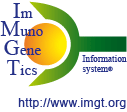Th differentiation
The decision of naive CD4+ T cells to become Th1or Th2 has important consequences in the success of an immune response and the progression of disease.
Th1 cells produce IFNγ and TNFβ, which are strong inducers of cell-mediated immunity.
Th 2 cells produce cytokines such as IL-4, IL-5, IL-10 and IL-13, which provide signals for B cell activation and antibody production.
In general, efficient clearance of intracellular pathogens is based on innate cell activation, while antibody responses are best suited for extracellular infections.
Cytokines represent one of the principal factors that determine the differentiation of naive CD4+ T cells into effector Th1 and Th2 cells. The presence of IL-4 causes precursor Th cells to differentiate into Th 2, whereas IL-12, IL-18 and IFNγ drive Th1 differentiation.
IL-6 derived from APCs is able to polarize naive CD4+ T cells into Th2 cells by inducing the initial production of IL-4 in CD4+ T cells. IL-6 inhibits Th1 differentiation of naive CD4+T cells by activation of STAT3 in response to IL-6 signalling, which leads to subsequent SOCS1 gene expression and inhibition of IFNγ signaling [1].
[1] Diehl S. et al. Immunity 13, 805-815 (2000).



